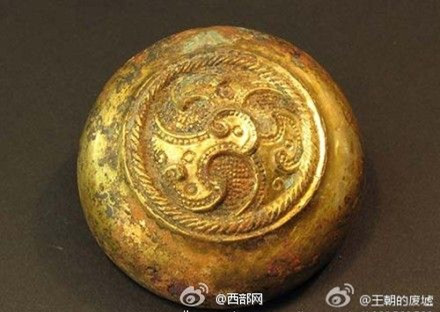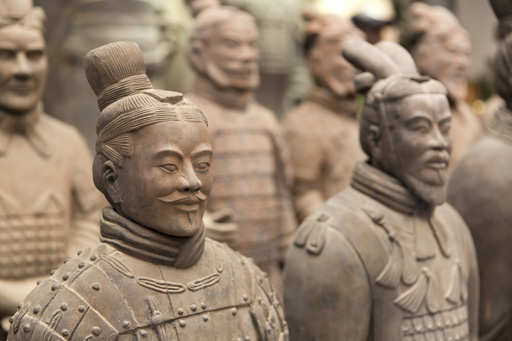
Enormous tomb of First Emperor’s grandmother unearthed in China
Archaeologists working at an archaeological site in Shaanxi Province in China have unearthed a spectacular tomb which belonged to the grandmother of Qin Shi Huang, the First Emperor of China, whose mausoleum is famous world-wide for its Terracotta Army. The newly-discovered tomb is among the largest tombs ever discovered in the country, second only to the tomb of the Emperor himself.
According to a report on China.org.cn, the tomb, which dates back approximately 2,200 years, was discovered during excavations ahead of the construction of a new campus for Xi’an University of Finance and economics, and measures an enormous 550 metres in length and 310 metres in width.
Although excavations are ongoing, archaeologists have already found two amazingly well-preserved carried pulled by six horses each. The presence of horses and carriages in tombs in China are a symbol of high status and usually reserved for members of the Royal family.

Archaeologists found two carriages, each pulled by 6 horses. Credit: cnwest.com
In addition, researchers have unearthed numerous jade, gold, and silver artifacts, as well as ornately decorated pottery, which have helped to identify the tomb as belonging to Qin Shi Huang’s grandmother; it is believed that the tomb itself was commissioned to be built by the Emperor. It has not yet been revealed whether a body or a sarcophagus has been found.

Gold item found within the tomb of the First Emperor’s grandmother. Credit: cnwest.com
Qin Shi Huang (259-210 BC) was the first emperor of the Qin Dynasty in China. He became King at the age of 12 and, according to historical records, was the Emperor who initiated construction of the Great Wall of China. Huang’s Mausoleum was a copy of his kingdom—which took 37 years and more than 720,000 people to construct—so that he could maintain his empire after death. It is most famous for the discovery of 8000 life-size Terracotta warriors, which had been built to protect the Emperor in the afterlife.

The First Emperor’s Terracotta Army. Source: BigStockPhoto
Featured image: An aerial view of the newly-discovered tomb in Shaanxi Province, China. Credit: cnwest.com
















Comments
history
The Terracotta army has always been so interesting to me, mostly because they are all so unique in appearance. It really looks like someone just turned them to stone (well ceramic). I also think the layout of the site is interesting.
love, light and blessings
AB